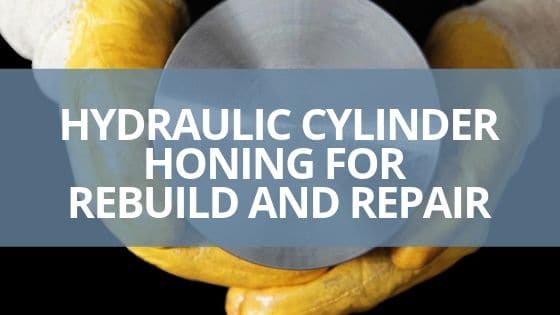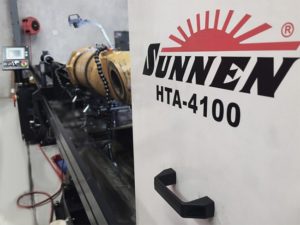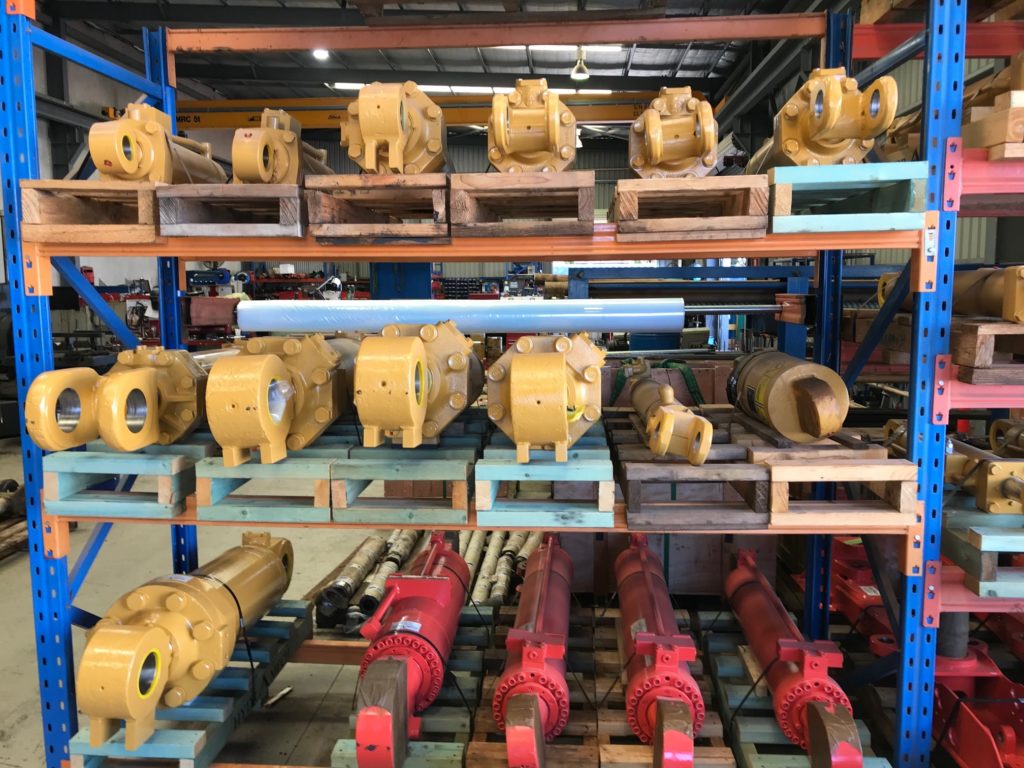There are many different applications for hydraulic equipment in a variety of modern systems, ranging from small systems in automobiles to the heavier systems used in larger machinery like mining equipment.
Any downtime results in lost production time and money, but if you can rebuild or repair the Component you can significantly reduce costs associated with downtime of your equipment, resulting in improved productivity.
What Is Hydraulic Cylinder Honing?
Honing is a unique abrasive machining process utilising hard tooling and perishable abrasives such as stones or diamonds. The stones are rotated with a lubricant under controlled pressure to produce a cross-hatch pattern on the surface of the cylinder. It is a simple process and a smaller part of the total process of a hydraulic cylinder repair or rebuild.
Why Hone Hydraulic Cylinders?
Oil leaks are the most common prompt that a cylinder needs repair; when leaks are present, there is a risk contaminants will enter the system. These contaminants can create scratches and other irregularities in the cylinder wall which accelerate seal wear and cause internal leaks. Leakage leads to a shorter service life and decreased performance.
A properly honed cylinder creates a secure seal, smooth operation, and extended seal life for any hydraulic cylinder. The primary objective when refinishing the cylinders is to make the walls as straight as possible, improve bore geometry, and create the right amount of crosshatch surface finish for good oil retention and ring support. In effect hydraulic cylinders are very similar to the engine in your car, however few people consider the bores of hydraulic cylinders with the same level of importance.
Advantages of honing:
- Improved lubrication
- Uniform wear
- Longer seal life
- Correct minor surface irregularities
- Correct geometrical issues
Honing can also be considered an inspection tool due to its ability to highlight surface imperfections after a light hone using a rigid tool. These surface defects may indicate a more severe condition which can be appropriately managed.
When Should You Hone a Hydraulic Cylinder?
1. When a cylinder is resealed
Light honing should be performed as part of a thorough repair, as honing when resealing will save you time and money. The costs of more frequent rebuilds, shortened seal life, and lost time can be mitigated to achieve maximum life, peak performance, and reduced downtime with a correct process.
Trends and Recommendations
Vitrified stones don’t wear at a consistent rate which makes it hard to predict how much metal the stones are removing, necessitating a start-stop process to finish honing the cylinder.
The trend today is towards diamond honing because it is less expensive over the long term and gives a more consistent cross-hatch finish.
Final Word
In some instances, cylinder damage is too severe, and in such cases, Hydramech’s hydraulics team and extensive range of precision machining equipment make them the first choice when you require hydraulic cylinder precision machining and fabrication tasks such as refurbishing, repair, and rebuilds. They will measure your cylinder bore and suggest the best way to keep your component in service.





